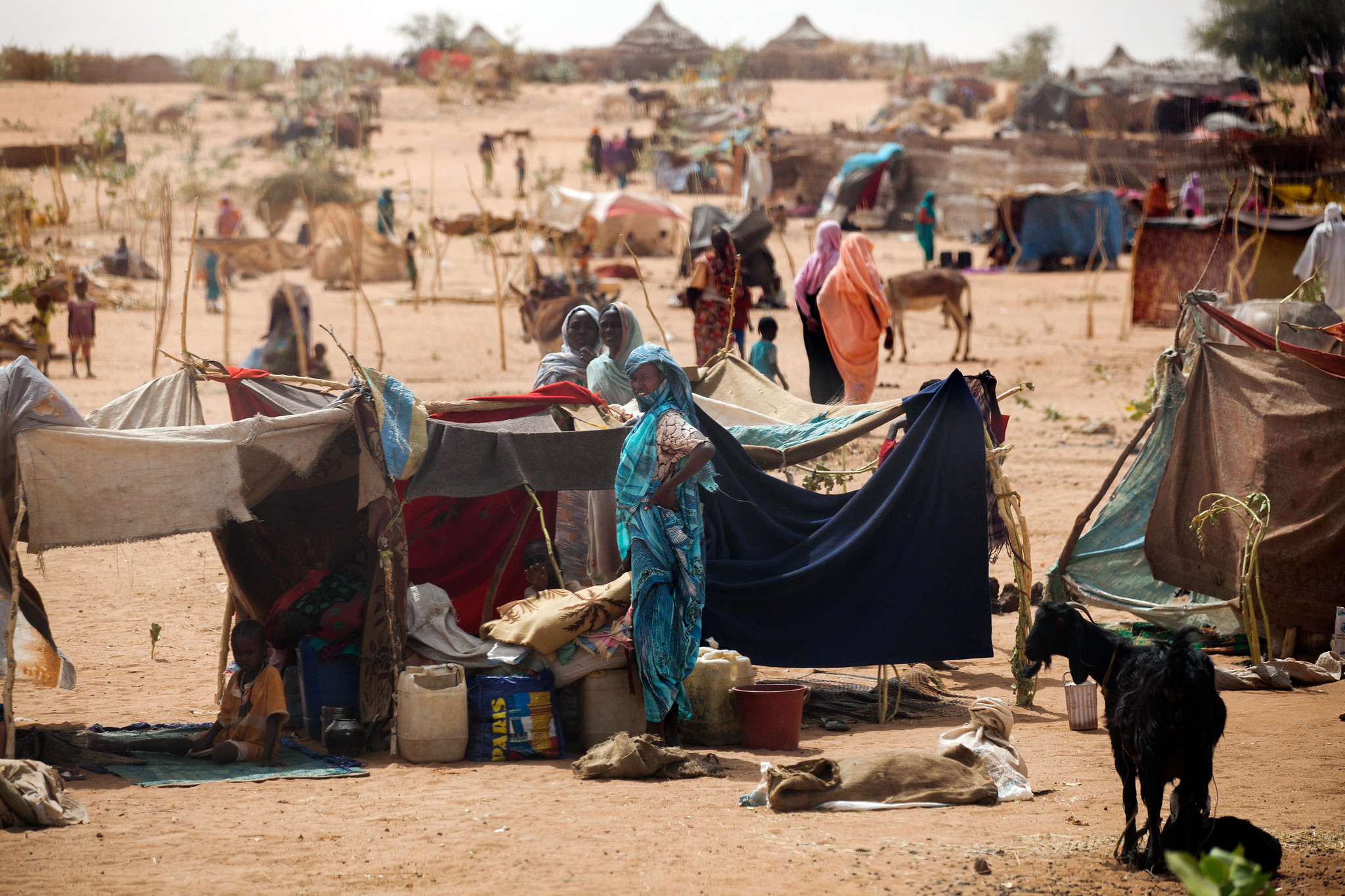Photo of general view of settlement in Zamzam camp for Internally Displaced People (IDP), North Darfur, Sudan, April 3, 2014 by Albert Gonzalez Farran, UNAMID.
Sudan Marks Second Year of Civil War
Weapons and fighters from nearby countries continue to flow into Sudan, allowing the conflict to persist and the world’s largest humanitarian crisis to grow.
On April 15, Sudan marked the second year of it ongoing civil war. Fighting erupted over disagreements between the rival generals of the Sudanese Armed Forces (SAF), the official Sudanese military, and the Rapid Support Forces (RSF) — a paramilitary group formerly controlled by the Sudanese government. After two years, there still is no clear end in sight.
Four days before the anniversary of the war, on April 11, the RSF violently attacked and took control of Zamzam camp for Internally Displaced Persons (IDPs) in North Darfur. According to the UN, more than 400 civilians were killed, including nine medical staff employees of Relief International. More than 400,000 people fled Zamzam, seeking safety in surrounding areas.
Since early March, the UN had reported that civilians sheltering in the vast camp were “nearly impossible” to reach due to relentless attacks by militia forces opposing the government in Khartoum. At the end of February, the UN World Food Programme reported that children were already dying in the camp and that thousands could starve in the coming weeks, after it was forced to pause aid distribution amid heavy shelling.
Back in Washington, the Trump administration condemned attacks by the RSF on civilians in North Darfur but State Department spokesperson Tammy Bruce declined to say if the U.S. was conducting diplomacy toward a peace deal.
Bruce also declined to say whether the Trump administration agreed with a finding by the State Department under former President Joe Biden that the RSF and allied militias have committed genocide in the conflict. Sudan brought a case against the United Arab Emirates (UAE) in the International Court of Justice on April 10, accusing the country of complicity in genocide for its alleged support of the RSF.
With no new peace efforts coming from the Trump administration, a former CIA analyst has suggested the U.S. “lean harder” on the UAE. “The UAE’s military and economic support for the RSF is meaningfully fueling and prolonging the conflict,” Holly Berkley Fletcher wrote in February for Lawfare Media. “The U.S. did up the ante in early January by including seven Emirati-based companies in the latest round of sanctions [on suppliers of weapons to the RSF]. But more could be done to put diplomatic and economic pressure on the UAE.”

